Diary of a Country Prosecutor (also published under the title Maze of Justice) is a partly autobiographical short novel by Tawfik al-Hakim; it was first published in 1937. Al-Hakim based the book on his personal experiences as a Prosecutor.
The narrator is a young Public Prosecutor from Cairo that works in a small town in the Nile delta. He keeps a diary in which he describes his life and thoughts in this rather dull, boring place, surrounded by usually illiterate fellahin and a few a bit more wealthy traders and village dignitaries and state representatives, like the umdah, the local mayor, and the ma’mur, the officer in charge for the public order in the district. Some judges, ushers, legal assistants, and ghafirs (sentries) complete the cast of characters of this novel – almost. Because there are also two somehow elusive characters in the book: the beautiful peasant girl Rim and the mysterious and eccentric Sheikh Asfour who usually knows more about what’s going on than all representatives of the state together but who prefers usually to keep his knowledge for himself.
The book starts with a crime. Someone shot at Kamar al-Dawla Alwan, but there is no visible motif nor is there a suspect. The Public Prosecutor describes the investigation and it is soon obvious that the reader cannot expect a classical whodunit. In fact, the search for the perpetrator is not so much what drives the story, but the absurd way how the law is exercised.
It is revealing what the narrator says about the two judges with whom he is working. One is terribly slow and usually charges all defendants as guilty, the other is terribly fast (because he wants to catch the 11 a.m. train back to Cairo in time every day) and charges also all defendants as guilty. The law is based on the Code Napoleon, a foreign import completely alien to the fellahin who don’t understand anything about it.
“The usher went on calling out names. The type of charge had begun to vary and we were entering a different world, for the judge was now saying to the accused, ‘You are charged with having washed your clothes in the canal!’ – ‘Your honor – may God exalt your station – are you going to fine me just because I washed my clothes?’ – ‘It’s for washing them in the canal.’ – ‘Well, where else could I wash them?’ – The judge hesitated, deep in thought, and could give no answer. He knew very well that these poor wretches had no wash basins in their village, filled with fresh flowing water from the tap. They were left to live like cattle all their lives and were yet required to submit to a modern legal system imported from abroad. – The judge turned to me and said, ‘The Legal Officer! Opinion, please.’ – ‘The state is not concerned to inquire where this man should wash his clothes. Its only interest is the application of the law.’ – The judge turned his glance away from me, lowered his head, shook it and then spoke swiftly like a man rolling a weight off his shoulders: ‘Fined twenty piastres. Next case.’”
Even more outrageous is a case in which the ‘speedy’ judge is in charge:
“A decrepit bent-backed man with a white beard came forward, hobbling on a stick. The judge pounced on him with a question: ‘You expended reserved wheat?’ – ‘it was my wheat, your honor, and I ate it with my family.’ – ‘Pleads guilty. One month with hard labour!’ – ‘A month! Do you hear, Muslims! My own wheat, my own crop, my own property…!’ – The policeman dragged him away. As he went, he stared at those in court with goggling eyes as though he could not believe that he had heard the sentence aright. Surely his ears must have deceived him and the spectators must have heard the truth. For he had stolen no man’s wheat. It is true that the usher had visited him and ‘reserved’ his wheat, appointing him as a trustee until such time as he paid the government tax. But the pangs of hunger had seized him violently – him and his family; so he had eaten his own wheat. But who could possibly regard him as a thief on that account and punish him for stealing? It was impossible for this old fellow to understand a law which called him a thief for eating his own harvest, sown by his own hands. These were crimes invented by the law to protect the money of the government or of private creditors; but they were not natural crimes in the eyes of the poor farmer, whose simple instinct could not find any sin in them. He knows well enough that assault is a crime, and murder is a crime, and theft is a crime; for all these involve an obvious aggression against somebody else and reveal clear and evident moral turpitude. But ‘expending reserved property’ – and this was something whose principle and definition he could not grasp. For him it was purely a formal, legalistic crime, whose impact he must go on enduring without believing in it at all.”
Tawfik al-Hakim’s book is first of all a powerful attack on the state of the legal system in his home country, which didn’t even try to establish justice – but ‘the law’. It shows the situation in its full absurdity and frequently with a savage humor that borders the macabre: there is a scene where the town barber, under the supervision of the Public Prosecutor and a pathologist, is dragging corpse after corpse out of first one grave and then another in a muddled attempt to locate the body of a woman who has been murdered. ‘The comedy is grim, but comedy it is’, as Booker Prize Winner P.H. Newby says in his foreword to the edition I read. That someone is arrested for the murder that is clearly innocent, is just adding to the picture.
Al-Hakim was a liberal; he studied law in France in the 1920s and started a career as a Public Prosecutor in Egypt but got quickly very disappointed and pessimistic. He is today considered a classic of modern Arabic literature. He was the Arab world’s leading dramatist, as well as a major writer of novels and short stories. Diary of a Country Prosecutor (elegantly translated by the young Abba Eban, later to become a famous Israeli diplomat and politician) is a brilliant book in the tradition of Gogol and Kafka; and I am afraid that it hasn’t lost its relevance even today.
Tawfik al-Hakim: Diary of a Country Prosecutor, transl. by Abba Eban, Saqi Books, London 2005
© Thomas Hübner and mytwostotinki.com, 2014-5. Unauthorized use and/or duplication of this material without expressed and written permission from this blog’s author and/or owner is strictly prohibited. Excerpts and links may be used, provided that full and clear credit is given to Thomas Hübner and mytwostotinki.com with appropriate and specific direction to the original content.

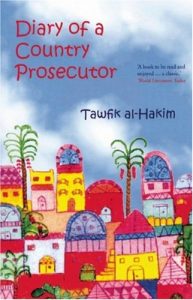
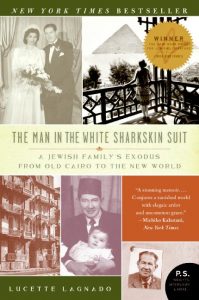
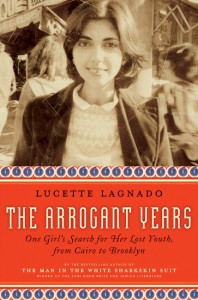
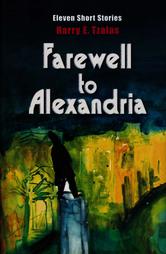
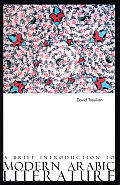


 Facebook
Facebook RSS
RSS Twitter
Twitter